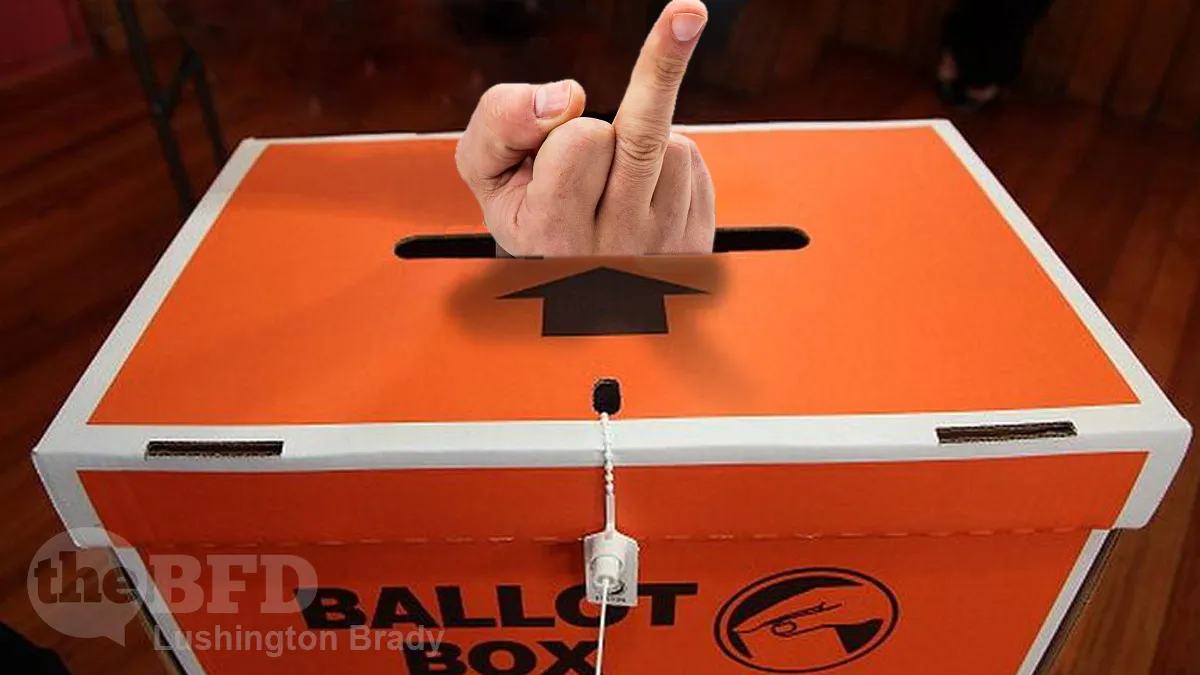Table of Contents
JD
Labour’s gone, so the leftie press is now excited about the performance of the Greens and Te Pati Maori. But how does this compare to previous elections? How much support comes from voters embracing their socialist ideologies, and how much from people voting for other reasons?
Looking first at the Greens. In 2011, as Labour’s performance against the incumbent Key Government got rapidly worse, disaffected lefties shifted to the Greens, who polled a record 11.06% of the vote. In 2023 as Labour’s performance in government got even more rapidly worse, disaffected lefties shifted to the Greens, who polled a lesser 10.77% of the vote. So not so much a runaway success then, just a slightly less exciting return to previous behavioural patterns.
Sure, the Greens scored another two electorate wins in the heartlands of the Wellingtonian woke, but that’s just a local aberration hardly indicative of the NZ voter as a whole.
One might also ask how many of those who did vote Green fully embraced Green Party policies. (With the probable exception of Universal Income, also known as free money, to be paid for by a tax on those few wealthy Kiwis who might stay in New Zealand to pay it).
It’s more the case that Green votes come from people of a certain age who view the Greens as a party of protest and a thumb in the eye of the establishment. Not so much an ideological shift, but rather more a “Look at me, I vote with the protestors because I’m young, fierce and rebellious and that’s what I do, innit.”
Overall, despite the triumphalism displayed on election night by Marama Davidson and Chloe Swarbrick, this green shift is just something that happens every time Labour loses its way. Come 2026, when Labour have regrouped and we’ve had three more years to understand the likely impact of the Greens’ hair-brained economic ideas (Reference the 13 pages of Economic Policy in the Green Party manifesto) their vote will probably fall back to the five or six per cent that represents the far-left conservationist rump of the party.
We should particularly note that wealth taxes, the major plank of the Greens economic policy, and an idea that both the Greens and Te Pati Maori espouse, cost more to administer than the revenues they collect and most countries that have tried them have since scrapped them. (For a more detailed analysis see the article Why Wealth Taxes Won’t Work).
Moving on from the Greens, let’s look at Te Pati Maori support in this election, where the leftist commentariat seems amazed by the fact that they won four of the Maori seats. First question then, why only four?
If there were, for example, seven seats in parliament reserved for Norwegian immigrants to NZ, and there was a political party calling itself “The Norwegian Immigrants Party of NZ”, one would logically expect them to get 100% of the votes in those electorates.
But here we have a party, claiming to represent the Maori people and specifically calling itself Te Pati Maori, which somehow can’t persuade most Maori to vote for them. With an estimated 632,000 Maori eligible to vote, less than 10% party voted Te Pati Maori in this election.
The individual electorates were a slightly different story, but once again it seems the votes cast were not much driven by an ideological shift. Nowhere is this more obvious than in Ikaroa-Rawhiti which Meka Whaitiri lost. Whaitiri, the sitting member, defected from Labour to Te Pati Maori, and, if there was a genuine voter push to embrace Te Pati Maori principles, should have won by a landslide. But she didn’t, because the vote wasn’t based on ideology: it was again a protest vote by youth against age.
Additionally, the loss of Hauraki-Waikato by Nanaia Mahuta after twenty-seven years of incumbency, and Te Tai Tonga by Rino Tirikatene, a seat held by the Tirikatene dynasty for seventy years, backs up this hypothesis, and in the latter case the term “dynasty”, with all its connotations of established privilege, says it all.
We can however recognise some of these Te Pati Maori votes represent a different kind of protest. The relentless promotion of a sense of victimhood and resentment of “the colonists” by the party leaders and others on the left (here’s looking at you Willie Jackson) clearly appeals to some Maori and they cast their votes accordingly.
However, anyone with a modicum of economic nous can see that, as with the Greens, the wild policy promises of Te Pati Maori regarding specific pay increases for Maori, doubled benefits, tax cuts, wealth tax, foreign companies tax, land tax etc, would drive the economy and the country to third world status even more quickly than Labour’s recent policies have done.
The followers of Te Pati Maori risk achieving the same rewards as turkeys who vote for Christmas, given that Maori are the people who will suffer the most if such an economic collapse occurs.
Additionally, it can be noted that shifting allegiances among Maori seats is not unusual; there is a clear history of volatility in these electorates as voters chase the promises of the day.
For example, NZ First, led by Winston Peters, who has based almost his entire 2023 campaign on Maori bashing, won all of the Maori seats in 1996, before they gradually drifted back to Labour and the Maori party as it was.
This time around it’s not socialism but separatism that is winning hearts, but after another three years of Waititi and Ngarewa-Packer shouting that rhetoric from the opposition benches to no avail, it may well be something else next time around.
A Labour comeback perhaps? Or even a referendum on the abolition of the Maori seats altogether as the non-radical 90% of Maori who don’t vote for Te Pati Maori reassert their preference to live as citizens of a united New Zealand, not as members of a separatist tribal confederation ruled by unelected elites.
In summary, and despite the leftie luvvies in the mainstream media wishing it otherwise, there was no remarkable ideological shift towards the radical left-wing politics of the Greens and Te Pati Maori. Next election some other candidates spouting a different grievance-du-jour will shift these votes again.
What we saw in 2023 wasn’t so much a pro-Green party or pro-Maori party vote, just simply a pro-test vote.








